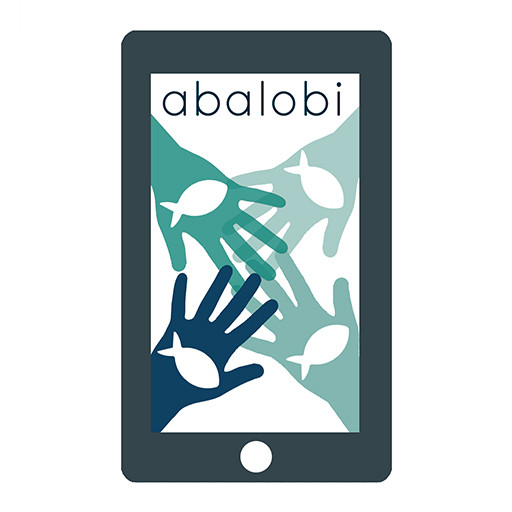Serge Raemaekers: Launched the abalobi.info project in mid-2015. This is a participatory action research project with a strong community development interface. Abalobi, as a free mobile phone app and co-development programme, is aimed at social justice and poverty alleviation in the small-scale fisheries arena, transforming the way we produce knowledge, promoting stewardship of marine resources, and resilience building in the face of climate change. The app has been developed and designed in partnership with fishers, various researchers at UCT, and officials from the Department of Agriculture, Forestry and Fisheries (DAFF). It is envisaged that the development of the full-scale app and the participatory process in fisher communities as well as with associated stakeholders (DAFF, NGOs, retailers, etc.) can become a transdisciplinary research endeavour linking expertise and students from the social, natural as well as information technology sciences.
Merle Sowman Project Leader of South African REINCORPFISH team, Serge Raemaekers, Jackie Sunde, Philile Mbatha, and Oliver Schultz : The objective of the REINCORPFISH project is the development of fisheries governance frameworks in South Africa and South Asia for the resolution of core fishery conflicts. This is a 5 year collaborative project involving researchers from the University of Cape Town (our group), University of Amsterdam, Universities of Ruhuna and Jaffna in Sri Lanka and MIDS in India, working collaboratively with NGOs and fishers in the respective regions to facilitate processes that will lead to the incorporation of excluded fishers into the fisheries sector and support their participation in policy-making and governance. Over the course of this project researchers and post graduate students have worked on specific topics including exploring customary governance systems along the east coast of South Africa (Sunde and Mbatha), examining processes of participation and representation in policy-making (Schultz), analyzing governance processes and the policy emanating from these processes (Sowman, Raemaekers and Sunde), developing an app for local fishers to participate in fisheries monitoring and management (Raemaekers), and examining the role of NGOs in facilitating bottom-up governance (Sowman). Our approach has been to work with NGOs and fishers in the process of conducting the research, producing knowledge and using research results to support recommendations for the implementation of the new Small-scale Fisheries Policy promulgated in 2012.
Gina Ziervogel: A recent transdisciplinary project,
FLOW (Fostering local wellbeing), aims to build transformative capacity in two local towns in South Africa – Piketberg in the Bergrivier municipality in the Western Cape and Kokstad in KwaZulu-Natal. This work emerged out of the Bergrivier Municipality Climate Adaptation Plan, where a focus on climate change governance and supporting low income households were identified as priorities for the region. The project is led by Associate Professor Gina Ziervogel and Meshfield Sustainability, building on previous African Climate and Development Initiative (ACDI) work in the Bergrivier Municipality that aimed to strengthen interdisciplinary work across UCT departments and with local practitioners. The project supported three mutually reinforcing interventions – a youth leadership development programme with a group of eight FLOW Ambassadors in each town, the introduction of a local community currency and lastly, specifically in Bergrivier, local government support for strengthening engagement with civil society. The FLOW ambassadors, who were unemployed before the programme started, have undergone a 12 month leadership programme where they engaged in a range of activities that have built all three dimensions of their transformative capacity. These activities include participatory community and resource flow mapping, enumerating a quantitative baseline survey, personal and collective reflective practices, building storytelling skills through video journalism, leading the group and interacting with the municipality and local businesses. The municipality has used the ambassadors’ movies to showcase municipal services at public engagement events, as well as asking the ambassadors to make movies of local professionals that were shown at a career workshop for school children. In addition, the governance of the local community-municipal interaction in Bergrivier has strengthened significantly, as the municipality now has frequent engagement with a group of youth from low income households
As a result of his PhD research with minibus-taxi businesses, Dr Herrie Schalekamp, from the Centre for Transport Studies in the Department of Civil Engineering, convened a capacity building programme for minibus-taxi operators from Mitchell's Plain and Khayelitsha. The programme is offered through the EBE Continuous Professional Development (CPD) unit and through ongoing funding support from the City of Cape Town. This special 'CPD' course, which can be understood as EBE's contribution to "popular education", will continue in 2016.
Rob McGaffin: Was a Mapungubwe Institute for Strategic Reflection (MISTRA) Urban Futures 'embedded researcher' in the City of Cape Town. He worked with City officials in the Department of Spatial Planning and Urban Design for the purpose of developing an Economic Areas Management Programme (ECAMP). ECAMP is a decision-making support tool for spatial planning at the city scale, and it uses open source data to advance evidence-based planning. He convened a Housing Finance Course for participants across sub-Saharan Africa with an explicit focus on teaching and research regarding the systemic issues hindering the provision of finance to affordable housing markets in sub-Saharan Africa. The course was run in partnership with the Graduate School of Business, the Wharton School of Business at the University of Pennsylvania, and the Centre for Affordable Housing Finance in Africa.


